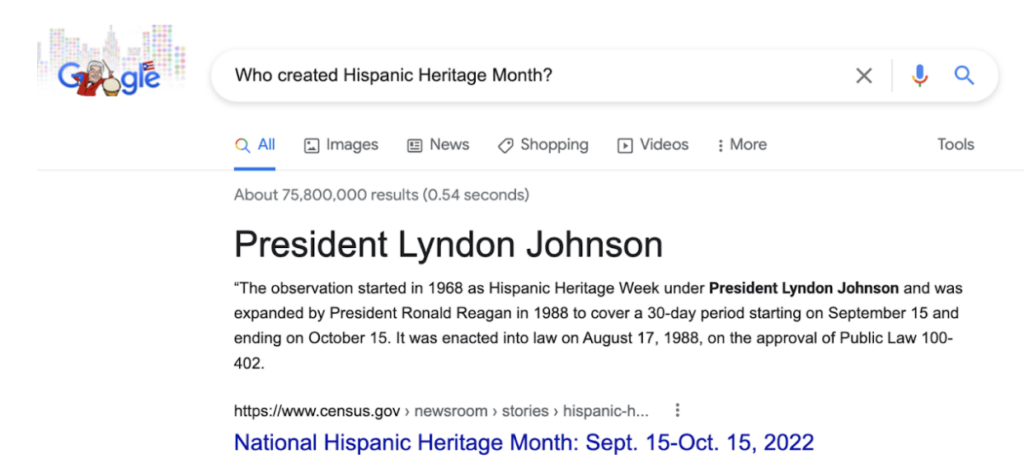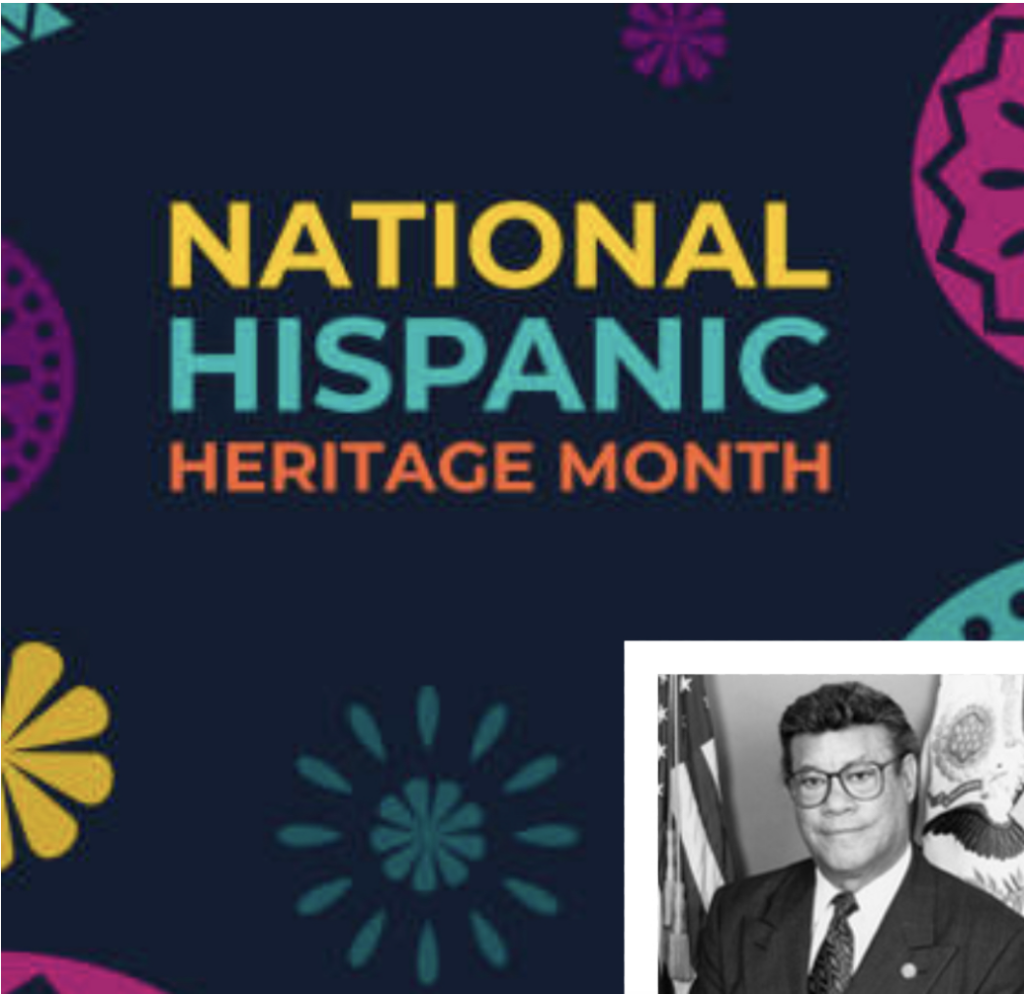Who created Hispanic Heritage Month? Well, if you were to type these words into your browser, as I did, you would receive the bolded answer, “President Lyndon Johnson.”

It was the Mexican U.S. Representative for California Esteban E. Torres, who passed away nearly a year ago on January 25th, 2022, and introduced H.R. 3182 in 1987, a bill to call for the establishment of Hispanic Heritage Month. But ironically, as a Latino who fought to have his community recognized, Torres’ efforts around Hispanic Heritage Month don’t receive the same recognition as the white presidents and legislators who signed it into law. Andrés Rodriguez, an ethnic studies professor at San Jose City College, reasons “This is another product where the immediate recognition of these events is mostly from people in power. They certainly played an important role in terms of being in their positions as president where they sign the documentation. But, that’s where our understandings of history, and in particular, our history, really gets diluted.” Even on the official National Hispanic Heritage Month website, the text only addresses the presidents’ contributions to the month.
Over the decades, Hispanic Heritage Month has become a celebration of the influence and contributions of our community. But Torres continues to be written out of this history, even though he has a story worth knowing. Born in Miami, Arizona, Torres was raised by his mother and grandmother after his father was forced to return to Mexico during the mass deportation of the Great Depression when Torres was five years old. Torres remarked, “My mother and my grandmother were very strong women, very educated and very proud to be Mexicans. They were the ones that taught me to defend my rights.” The influence of his family instilled a strong belief in having pride in his racial background and advocating for cultural representation, which eventually led him to become involved in politics.
Aside from Torres, it was not easy to find information about who else was behind the movement of creating Hispanic Heritage Month, which further reveals how buried Latinx history remains. However, the 1980s (around the time Torres presented his bill) was noted as an endeavor for unity in the Chicano Movement after the two decades of struggle to end discrimination against Mexican Americans. Karla Cativo who teaches race and culture and central American studies at California State University, Los Angeles, states, “Sometimes that takes advocating for our rights and our voices and not staying quiet when the leadership wants to take advantage of us. [W]e forget that, had it not been for the people, for those individuals in the background, really doing all the work, we probably wouldn’t be where we are and have all the things we have.”

Rodriguez puts it this way: “The contributors [like Torres] are the folks that were on the ground really fighting, really demanding, for this to happen. And, it’s important that those folks get recognized. Because, if we just leave it at some U.S. presidents who were involved in it by signing this into law, then it’s really not telling the whole story.” Rodriguez and Cativo are right; if we are not taught the truth of our history and do not advocate for our truth, our complete story is never told. Even in the month when our community is supposed to be uplifted and acknowledged, our history remains concealed and suppressed. So, since it’s not said often enough, let me say it again: There were Latinos behind the creation of Hispanic Heritage Month, such as Esteban E. Torres. As Esteban E. Torres’s one-year anniversary of his passing approaches, I want my community to realize the power our voices hold. If we do not speak out about topics that may be hidden or collectively suppressed, we will never make progress that truly celebrates Latino heritage and recognizes the depth of diversity.
